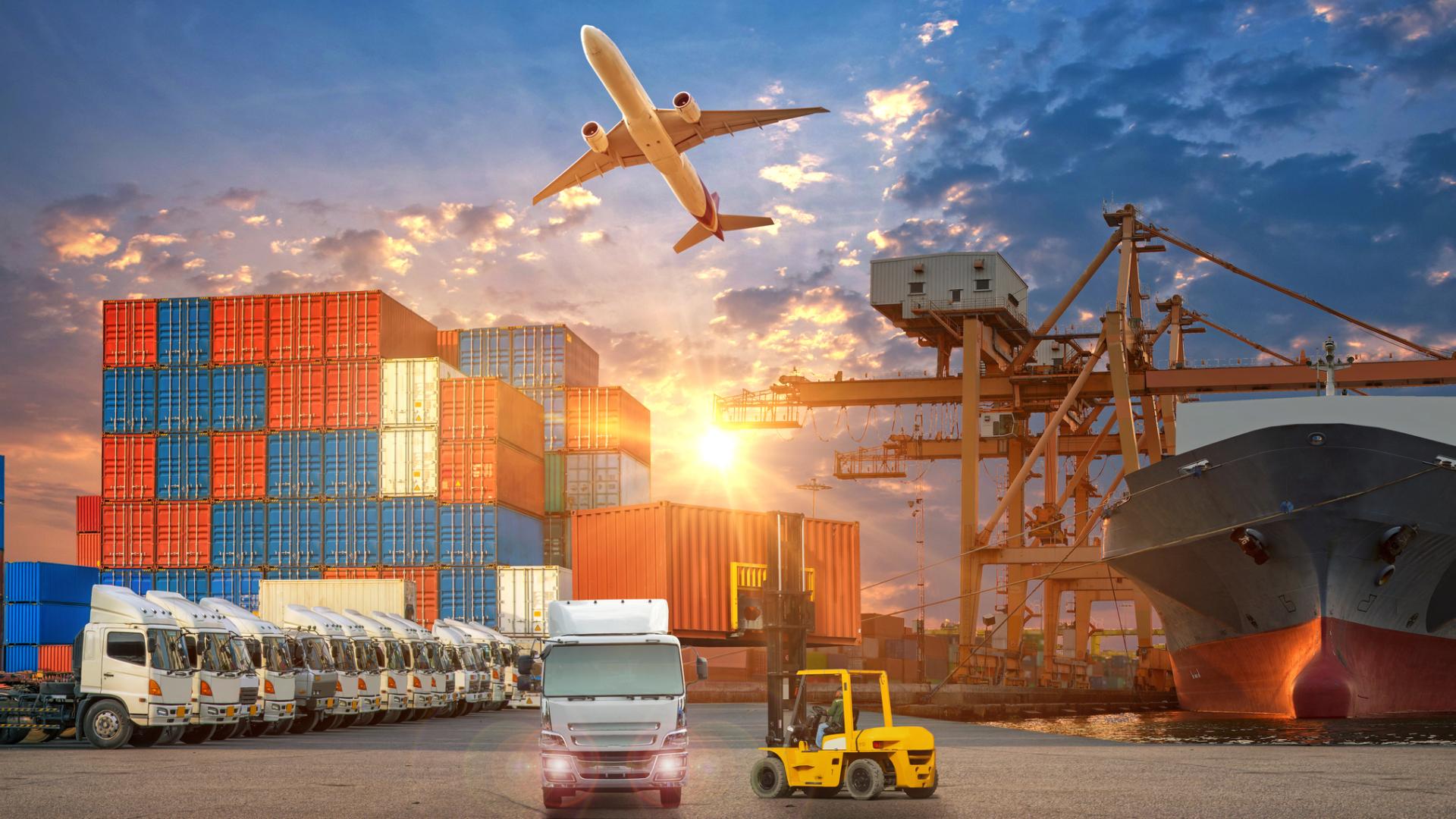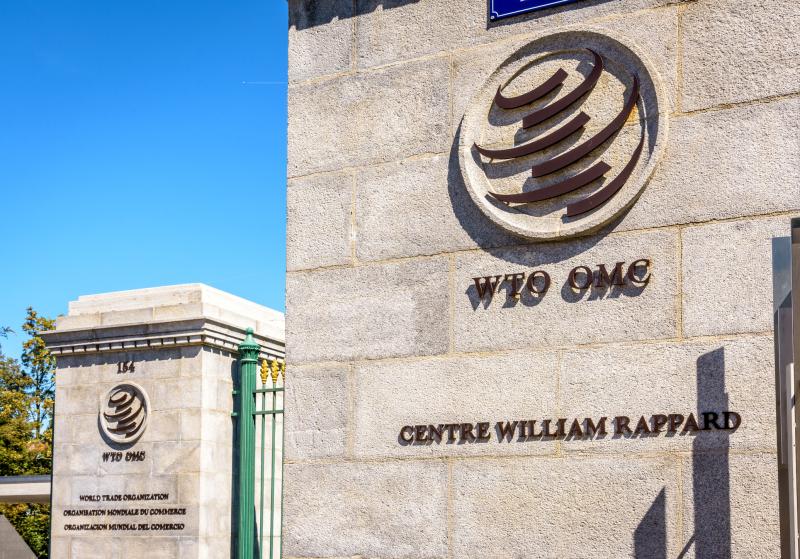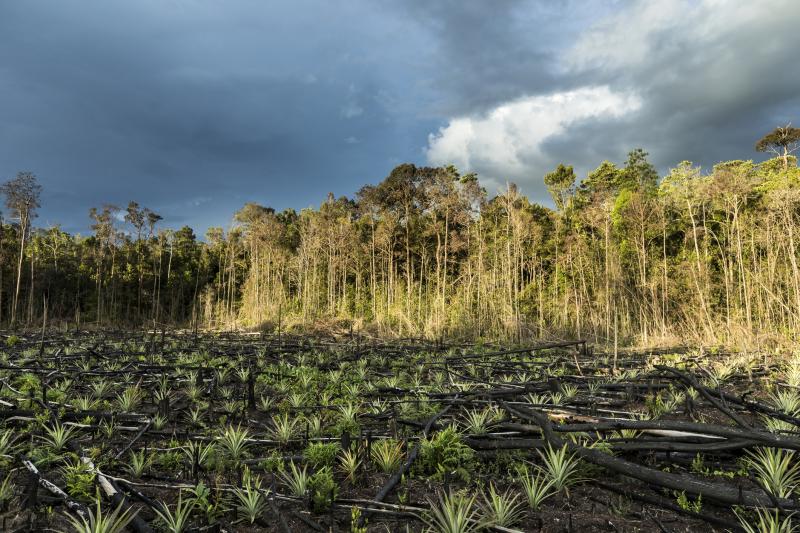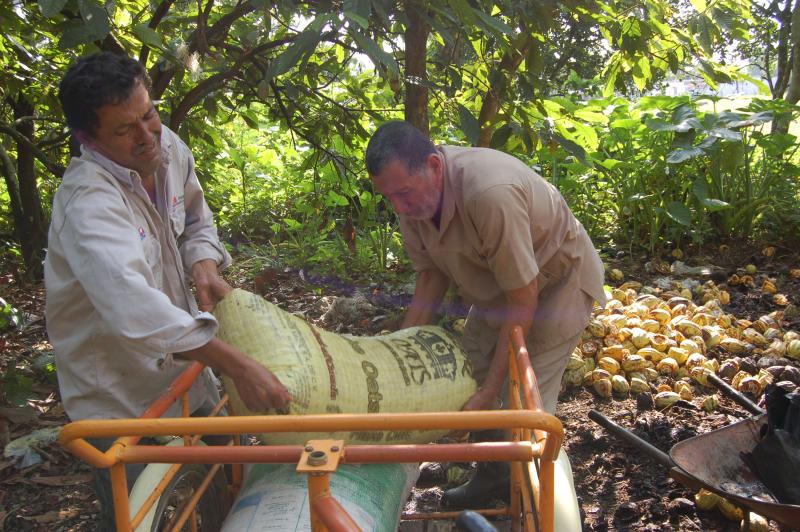Kierra Box08 Feb 2021
Does trade inevitably lead to climate breakdown?
Around the world, individuals, communities and national leaders are increasingly concerned about the climate and ecological crises we’re facing. Momentum is building in support of action to avoid irreparable climate breakdown – but international trade law lags way behind.
The way things are made and traded has a history of undermining social and climate justice, impacting on human rights and sustainability, and blocking serious action on carbon emissions. But these effects are currently locked in by international institutions and agreements. Unless we can rethink the rules that govern international trade, avoiding doing harm and making a positive contribution to progress in these areas instead, it’s hard to imagine a future where international trade can be anything but a hindrance when dealing with the climate emergency.
The time is right for a serious discussion about what international trade rules could achieve for people and planet and how they can be re-designed to get us there.
Why current trade rules are a Bad Thing for people and the climate
Simply put, trade rules exist to make it easier to trade – and increase the amount we all trade globally. Their primary aim is not to end poverty or lower carbon emissions. But making and trading more things means using more natural resources and burning more fuel to transport goods. So it's not surprising that the rules set by the World Trade Organisation (WTO) and agreed in free trade agreements (FTAs) between different countries have exacerbated problems like deforestation, pollution and human rights abuses – even when that isn’t the intention.
But such impacts are often the unavoidable consequence of such agreements. Over time, a global trade system has developed where most FTAs now include specific commitments that support and enable trade but have very direct negative impacts on our environment. For example:
- Agreements on shared rules around goods and services can make it harder for individual countries to make new laws or raise standards.
- Bans on subsidies (financial support for specific industries) and rules on intellectual property (ownership of ideas) make it more expensive and more complicated to develop green technologies or improve access to medicines and data.
- Protections for foreign investors can force governments to abandon new laws aimed at protecting the public or the environment.
How new rules can make trade a Good (better) Thing
One of the major obstacles stopping trade rules supporting the achievement of other goals is that trade tends to be viewed as an end in its own right. We need to rethink the point of these rules and make them work (better) for people and planet.
How about…
Reshaping the WTO and FTAs so they reinforce, support and require compliance with key international commitments on the environment, human rights and social justice – including the 2015 Paris Climate Agreement and the UN Sustainable Development Goals.
Enhancing the primacy of domestic law over international trade. Supporting and enabling nations to develop and implement domestic laws that enhance environmental protection, climate mitigation and social justice, even if they restrict international trade.
Raising shared production standards. Challenging barriers to state-provided support for sustainable technologies and national restrictions on the importation of environmentally damaging goods. And agreeing stronger shared production standards for globally traded goods.
Some first steps towards an alternative trade model
It’s well known that changing these international rules can be a slow and difficult process. Recent WTO talks dragged on for years before falling apart, and previous statements around sustainable trade have been anything but visionary.
But are there ways in which individual nations could start to level up existing trade and investment agreements? The UK currently has hundreds of these deals that already include review mechanisms, with new ones being negotiated, so there’s certainly opportunity for change. In Alternative Trade For the Planet, a recently published joint report by the Trade Justice Movement and Friends of the Earth, we’ve suggested five principles that negotiators in the UK and elsewhere would do well to consider to make current and future deals more climate friendly.
- Don’t disconnect what you’re agreeing from who you’re agreeing it with: the recent EU-Mercosur agreement is a prime example of how disconnected FTA negotiations can be from the actions of partner countries with regard to climate or the environment. In this case, non-binding environmental language was included in trade negotiations, at the same time as Brazil introduced measures that would undermine global environmental, climate and human rights goals.
- Prioritise the environment: rethink provisions that could impact the abilities of national governments to regulate, and bolster prohibitions on deregulation. Right now, many trade agreements allow foreign businesses to challenge new, stronger national environmental laws in court. But if one partner in a trade deal decides to lower environmental or social standards, these agreements don’t make it easy for the other side to take action. That’s because current trade deals only guarantee that members won’t weaken standards in ways that “encourage trade or investment” (like in the EU-Canada agreement). Changing these provisions to make environmental and social protections, instead of profit, the priority in these situations would ensure trade rules do not directly conflict with other global priorities or domestic ambition.
- Replace warm words with binding and enforceable protections to mitigate the environmental impacts associated with increasing trade. This means no more agreements like the EU-Canada trade deal, in which both sides agree to “promote”, “enhance coordination on” and engage in “dialogue and cooperation” around environmental commitments. These warm words sound positive but they wouldn’t hold up in court. Instead, trade agreements should focus on the guarantees all parties are willing to commit to in taking specific, measurable and practical action. That means undertakings such as “parties will achieve a 50% reduction in domestic emissions by 2050” – and a mechanism where, if one side doesn’t keep to the agreement and refuses support to do so, the other side can take action against them.
- Democratise the global debate and ensure full participation. Make sure trade policy works in the interests of environmental and social goals by democratising the global debate around how trade affects the climate and equality. Require potential trade partners to guarantee the full participation of civil society, including affected communities, trade unions and other organisations, in the process of laying the groundwork for, negotiating, and agreeing trade deals.
- Be holistic: Join up domestic ambition on climate action with what you’re saying and doing around trade.
Trade laws are not immutable
The approach to trading agreements can change. We don’t have all the answers. But we shouldn’t think that just because current agreements are socially and environmentally harmful, they have to be that way. Or that, because the WTO is unhelpful, it can’t change. Or that, because we’ve always ignored the human and environmental impacts of trade rules, that’s the way it should be. Trade is not subject to immutable laws. The institutions and processes that enable international trade can be changed, and groups of nations can take a lead in demonstrating how their approach to trade policy bolsters their ambitions around social justice or climate action.
An extreme approach would mean ripping up trade agreements, getting rid of all the current institutions and starting again. But that would have immediate impacts for people and planet. Instead, there are middle ways that don’t mean a choice between the status quo or global revolution. Sometimes that means trade-offs, but it doesn’t have to be a zero-sum game – there are some win-wins around equitable and just climate-friendly trade that delivers benefits for people and the environment, while allowing business to thrive.
We need joined-up thinking about the impacts of trade on development, justice and climate. And we need joined-up solutions, many of which involve restricting the ability of trade to interfere with these important aims. We should start viewing trade through a lens made of all these things combined. And we should work together to fix it.
We’re starting a conversation here
Everyone should be confident talking about trade, how it impacts the things we care about and suggesting possibilities for these seemingly immutable practices to change. We’d love to continue this conversation. If you’d like to get in touch, email [email protected].
More details on these issues are available in the Alternative trade for the planet report, by Ruth Bergan (Trade Justice Movement) and Kierra Box (Friends of the Earth).





